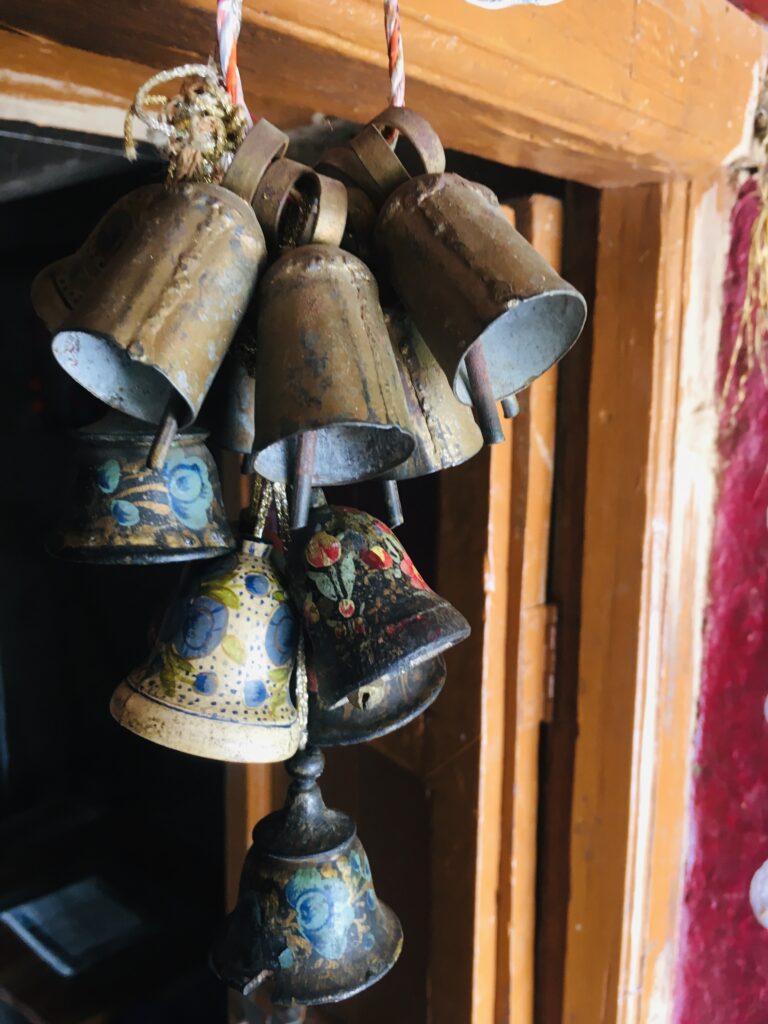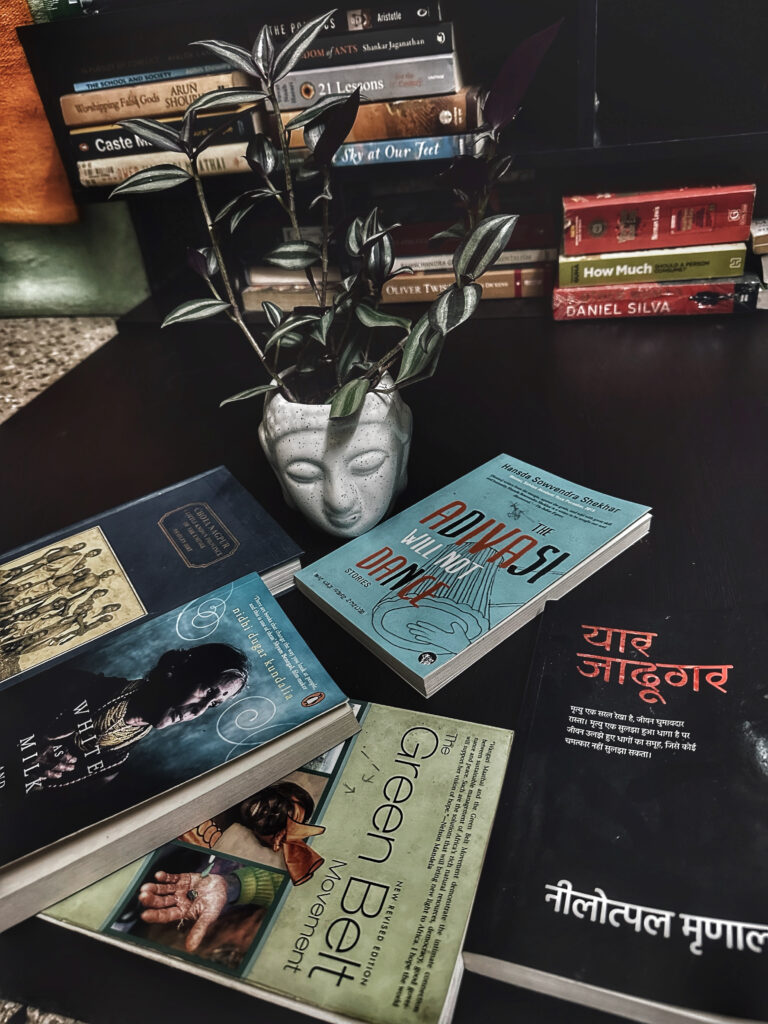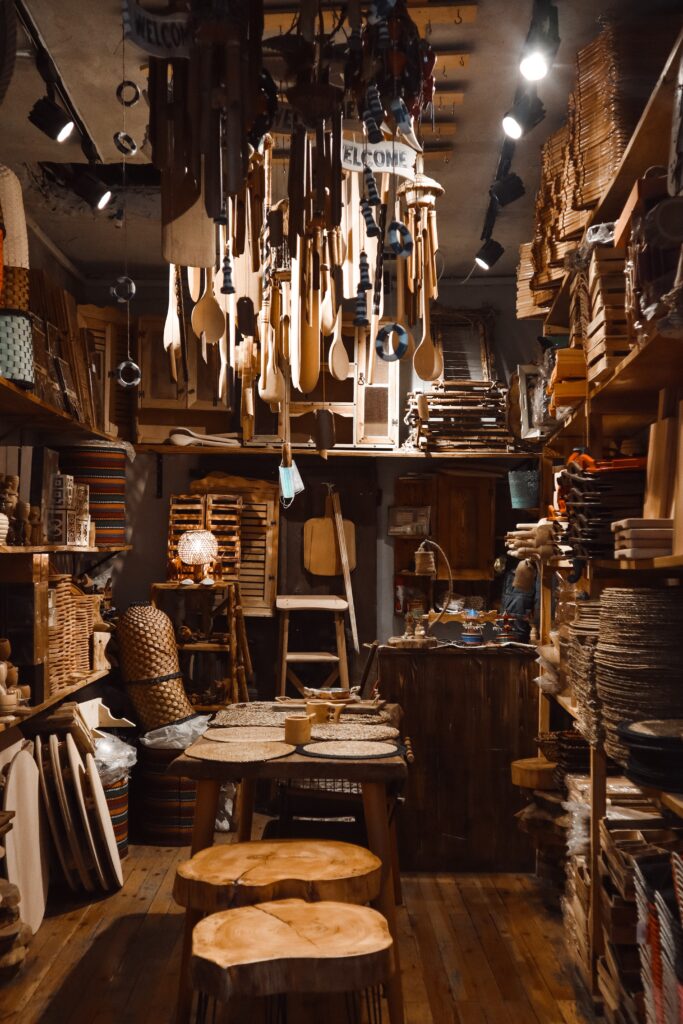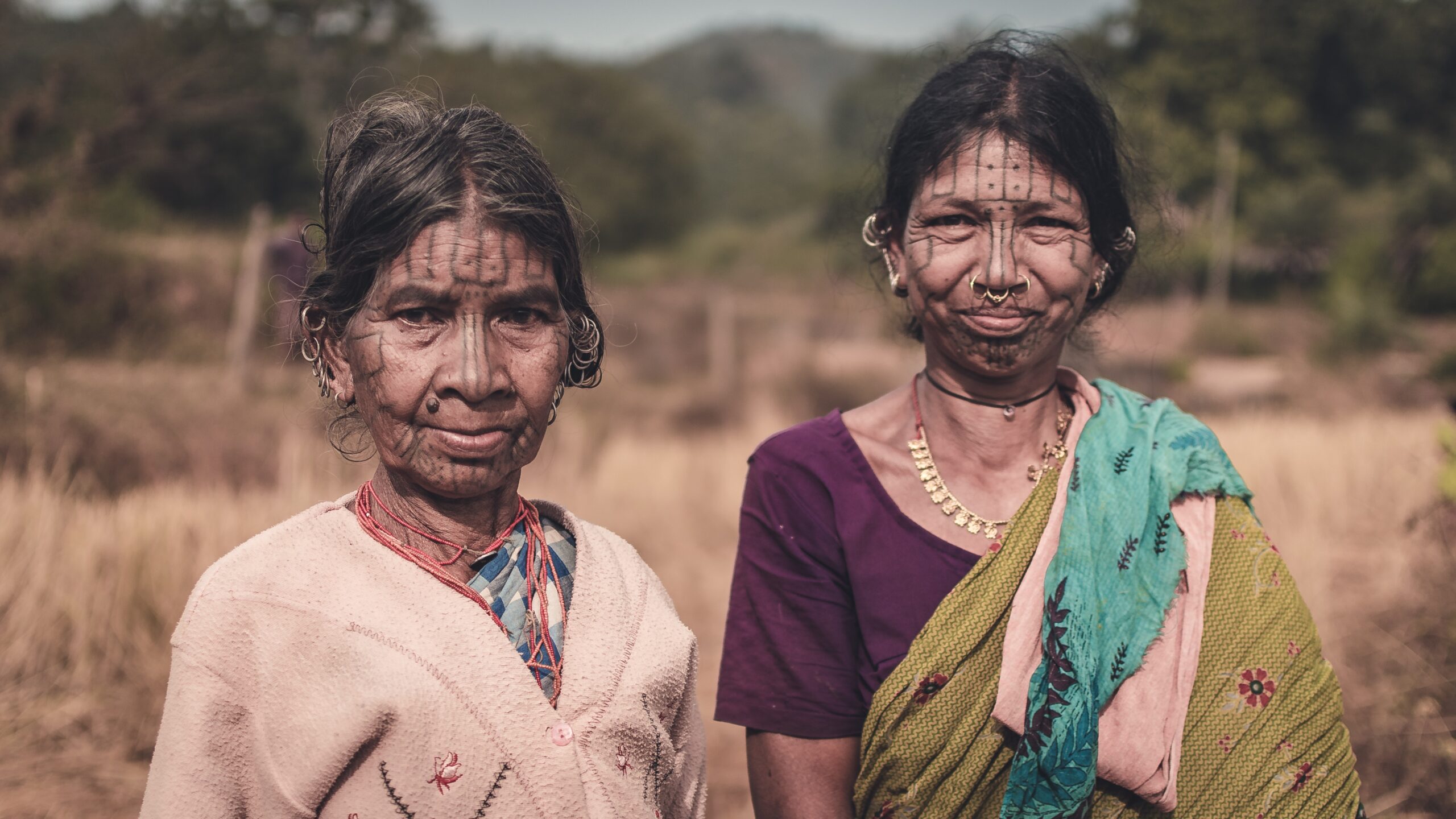Indigenous Day is a time to honor and celebrate the diverse cultures and traditions of Indigenous communities worldwide. “Adivasi” is the collective name used for the many indigenous peoples of India. The term Adivasi is commonly translated as ‘Indigenous people’ or ‘original inhabitants’, and literally means ‘Adi or earliest time’, and ‘vasi or resident of’.
One meaningful way to commemorate this day is by giving Indigenous or Adivasi gifts that promote their unique knowledge systems and art. These gifts not only express appreciation but also contribute to preserving and sharing the rich heritage of the Adivasi people. In this article, we will explore a selection of Adivasi gifts that can be given on this special occasion.
Table of Contents
Adivasi Handcrafted Artworks
India boasts an extensive array of tribal crafts, showcasing the country’s rich cultural heritage. Among the diverse crafts produced by various tribes are Art, Baskets, Papier Mache, Ceramics, Clock Making, Embroidery, Block Printing, Decorative Painting, Glass Work, Fabric, Furniture, Gifts, Home Décor, Jewellery, Leather Crafts, Metal Crafts, Paper Crafts, Pottery, Puppets, as well as Stone and Woodworks. These traditional crafts represent the exquisite craftsmanship and artistic skills passed down through generations, reflecting the unique stories and identities of India’s tribal communities. Each craft holds profound significance, blending cultural traditions and contemporary designs, making them treasured pieces of India’s artistic tapestry.
Some Tribal Artworks you can check
- Brass Idol of Tribal Man with Bow & Arrows
- Tribal Musician Showpiece
- Handmade Wooden Jewellery Box
- Terracotta 16 inches Painting Stone
- Terracotta Warli Handpainted Miniature
- Madhubani Handicraft Wall Hanging Ceramic
- Pingla Hand Painted (West Bengal) handicrafts
- Bandhanwar Toran Tribal Textile Wall Hanging

Adivasi Clothing and Accessories
Traditional clothing and accessories hold great significance in Indigenous cultures. Gifting intricately designed garments, beaded jewelry, or finely crafted headdresses not only celebrates their heritage but also encourages the continuation of traditional craftsmanship. Tribal jewelry exudes an eclectic, earthen, and funky charm, reflecting the distinctiveness of tribal cultures. On the other hand, ethnic jewelry exudes an arty, refined, and timeless elegance, symbolizing the enduring traditions of particular ethnic groups. Throughout history, tribes adorned themselves with a diverse range of jewelry, encompassing traditional necklaces, bangles, and earrings, as well as more unconventional pieces like ear cuffs, lip rings, and toe rings. The materials used by these tribes were largely sourced from their surroundings, including shells, claws, animal jaws, ivory, wood, and other locally available natural resources. This imbued their jewelry with a raw and authentic appeal, connecting it deeply to their heritage and environment.

Some Adivasi Clothing and Accessories available on Amazon
- Hand-Painted Traditional Handloom Cotton Tant Saree
- Tribal Warli Handpainted Wooden Earrings
- Tribal Naga Choker Collor Necklace
- Nagaland Naga Handicrafts Muffler
- Northeast Tribal Weave Handwoven Sling Bag
- Warli Art Designer Sling Bag/Tribal Art
- Rajasthani Antique Tribal Statement chokers
- Traditional Assamese Handmade Japi/Hat
- Assamese ethnic handloom cotton saree
Adivasi Literature and Storytelling
Throughout history, Adivasi literature has remained concealed from the mainstream gaze, even though it holds a treasure trove of rich oral narratives. These stories are imbued with elements of the fantastic and surreal, transporting listeners to a world of wonders. They delve into the essence of Adivasi life, exploring themes of nature, philosophy, the human condition, and the intricate interconnections between them.
In acknowledgment of these profound voices, the following list of books—though not exhaustive—presents a diverse collection of writings by Adivasi authors in vernacular languages. These works represent some of the earliest literary expressions from their community, spanning both older and contemporary pieces. Each of these literary gems is deeply rooted in Adivasi politics, contextualizing the social and historical challenges faced by these communities in various regions. These writings delve into essential topics, such as Adivasi-Indigenous identity, the disruptive impact of the capitalist model of “development” on Adivasi lands, the evolving relationship of Adivasis with “Jal, Jangal, Jameen” (water, forest, and land), as well as the influences of external religions and cultures. Some of these works also echo the powerful and assertive voices of Adivasi women, as they bravely address various forms of violence and offer their perspectives on Adivasi society as a whole.
Books on Indigenous Literature
- White as Milk and Rice: Stories of India’s isolated tribes
- The Adivasi Will Not Dance
- Yaar Jadugar by Niloptal Mrinal
- Being Adivasi: Existence, Entitlements, Exclusion
- Adivasi Sahitya : Parampara Aur Prayojan
- THE BLACK HILL
- WARI (2nd Edition): A collection of Manipuri Short
- The Other Side of Development: The Tribal Story
- TRYST WITH THE TRIBES: TALES FROM TRIBAL HEARTLANDS
- Tribal Tales from Jhabua
- Tribal India

Adivasi Herbal Remedies
Throughout centuries, Adivasis and tribal communities have relied on a diverse array of plants, trees, and herbs for healing various ailments and diseases. While the efficacy of herbal medicines remains a subject of debate, numerous plants are renowned for their effectiveness in treating wounds, aiding digestion, managing blood pressure, and even possessing antidepressant properties. The traditional knowledge surrounding these natural remedies is invaluable, and their utilization has been passed down through generations.
Presenting these herbal products as gifts not only showcases their medicinal properties but also serves as a means to promote and preserve the rich heritage of Adivasi knowledge. By encouraging the use of these native remedies, we empower Adivasis to continue their ancestral wisdom and maintain their connection with the healing powers of nature. Embracing and supporting these herbal practices not only benefits individuals but also fosters a deeper appreciation for the traditional healing wisdom that has sustained these communities for ages.

List of Some Popular Natural/Herbal Products
- Adivasi Herbal Hair Growth Oil
- Country Side Organic Moringa Powder
- Mahavishgarbh Oil from Chhattisgarh Herbals
- Omersheen 100% Raw Tribal Honey
- Jamun Green Tea-30 bags
- Chhattisgarh herbals l CTC Tea / 200 grams
- TARU Tribal Roselle Flower Tea
- Zoltamulata Kali Haldi Black Turmeric from Tribal Odisha
- Tribals Pride Seedless Mango Pickel
- Suan Rice (Little Millet) Cultivated by the Tribal Farmer
Sustainable and Eco-friendly Craft Products
For generations, Natural fibers and bamboo have been an integral part of Adivasi craftsmanship, yielding an array of household furniture pieces like quaint stools and delightful decorative items like flowers. The versatility of bamboo extends to utility items too, with pen stands, image frames, baskets, and mud bins showcasing the ingenuity of Adivasi artisans.
Cane and bamboo crafts stand tall as one of the many cherished traditions in Sikkim. By opting for these eco-conscious creations, you not only embrace the artistry of Adivasi communities but also contribute to preserving our planet’s beauty and biodiversity.
Choose the elegance and eco-friendliness of Adivasi crafts and immerse yourself in the rich heritage of sustainable living. Each piece tells a unique story, connecting you to the harmony between tradition and nature.
Some Eco-friendly Tribal inspired Craft Products
- Eco-Friendly Foldable Bamboo Laundry Basket
- SABAI Grass Hand-Woven Table Mat
- SABAI Grass Hand-Woven HOT CASE
- Compostable Bristles Bamboo Toothbrush
- Bamboo Circular Tray
- Table Spoon with Coconut shell and Bamboo (Wayanad Chiratta Thavi)
- Thenga Coconut Shell Artisan Soup Bowl
- Northeast Handicrafts Bamboo Beer/Tea/Coffee Mug
- Wqt-Bamboo Water Bottle
- Woven Bamboo Cane Ceiling Lamps
- Roll up Bamboo Curtain
- FarmCrane Hand Woven Palm Leaf Gift Box
- Handmade Wooden Handcrafted Palm Leaf Trinket Box

FAQs
Why Indigenous day is celebrated?
In order to raise awareness of the needs of these population groups, every 9 August commemorates the International Day of the World’s Indigenous Peoples, chosen in recognition of the first meeting of the UN Working Group on Indigenous Populations held in Geneva in 1982
What is Adivasi Hair Oil?
Adivasi Hair oil is hair oil based on the Adivasi Tribal knowledge of the growth and health of the hair. It is prepared using local herbs and other ingredients found locally. And it is supposed to be a chemical-free alternative for healthy hair growth and also to prevent hair loss.
What are tribal or Indigenous products?
Tribal or Indigenous products refer to items crafted or produced by communities with deep cultural ties to specific regions. These products often carry unique traditional designs, techniques, and stories that reflect the heritage of these communities.
How does promoting tribal products support cultural preservation?
By promoting tribal products, we encourage the continuation of traditional craftsmanship and techniques. This preservation not only maintains cultural identity but also prevents these valuable skills from fading away over time.
How do tribal products contribute to local economies?
Tribal products often utilize natural materials and sustainable practices, minimizing the ecological footprint. By supporting these products, we encourage eco-friendly production methods and reduce the demand for mass-produced goods with negative environmental effects.
How does the promotion of tribal products empower Indigenous communities?
Promoting tribal products provides economic empowerment, cultural pride, and a sense of agency for Indigenous communities. It helps them maintain their way of life, build self-sufficiency, and preserve their identity for future generations.
Why is Indigenous literature important?
Indigenous literature is essential because it amplifies Indigenous voices, challenges stereotypes, and provides insights into diverse cultures. It fosters understanding, promotes cultural preservation, and offers a platform for self-expression.
Can Indigenous literature inspire social change?
Yes, Indigenous literature has the power to inspire empathy, understanding, and advocacy. It sheds light on important issues, challenges injustices, and contributes to conversations about social change.


